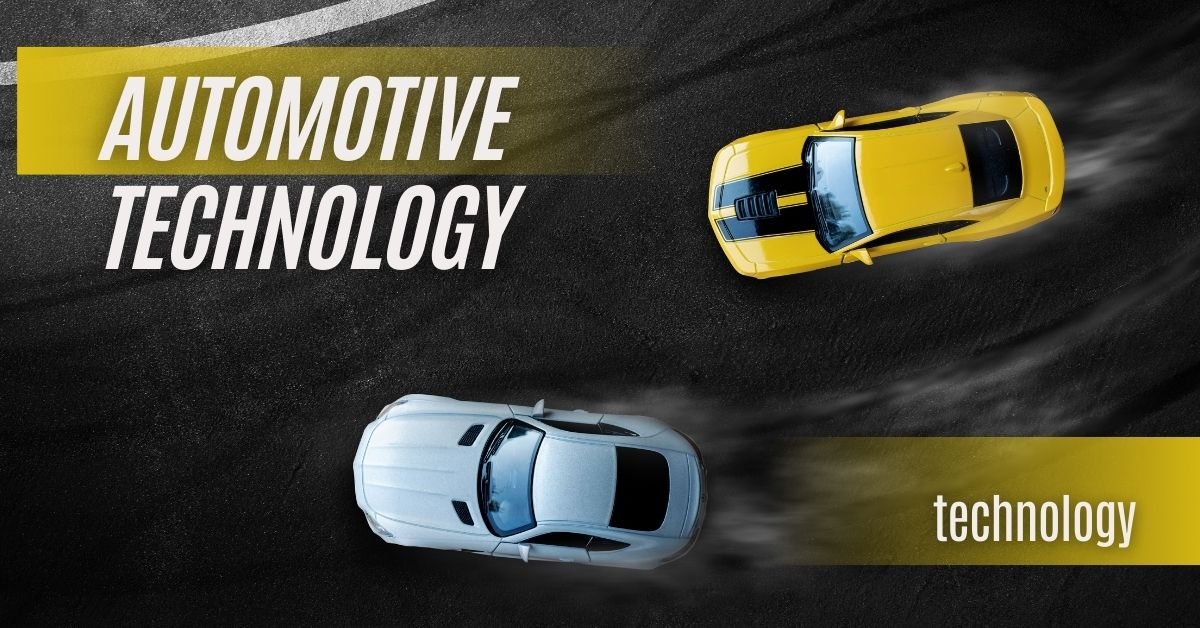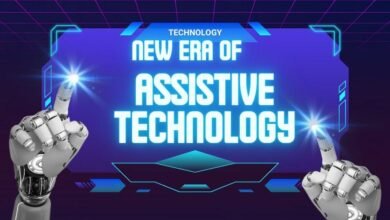
 More technology than ever before is found in modern cars, including automated braking, self-driving and parking capabilities, and other features that require skilled workers to develop, manage, and fix. There are many different automotive technology jobs available if you want to work in the field because of the ever evolving technology.
More technology than ever before is found in modern cars, including automated braking, self-driving and parking capabilities, and other features that require skilled workers to develop, manage, and fix. There are many different automotive technology jobs available if you want to work in the field because of the ever evolving technology.
The definition of automotive technology, the type of schooling required, the typical advantages offered, the abilities needed in the field, and a list of 13 potential careers are all covered in this article.
Automotive technology: what is it?
Automotive technology encompasses the development or design of vehicle technology as well as the necessary maintenance or repairs. It is the study of how self-propelled vehicles move. This can include computer technology, engineering, mechanical, and the engine and other systems. In addition to consumer cars, heavy machinery, heavy trucks, and public transportation also need automotive technicians and allied professions. As the business expands, people in the area must keep up with new equipment, software, and technology.
Education in automotive technology
There are numerous methods to start and continue your education in technology, even though you pick up a lot of skills on the job. Consider the following courses or credentials:
A two-year associate’s degree in automotive technology from a recognized school teaches you the fundamentals of engines, transmissions, heating and cooling systems, suspension systems, and computer technology in automobiles.
Masters or bachelor’s degrees: You can specialize in one area of automotive technology, such as alternative fuel systems, dynamics and control, ergonomics, or transportation systems, or you can study more general topics like management or leadership with advanced degrees.
Accreditations: Even without a degree, you can obtain several certification levels. These consist of rapid service certificates or transmission service certificates, diesel technology, drivetrain proficiency, and drivability certificates.
The advantages of a career in automobile technologies:
A job in automobile technology has many advantages, such as:
Opportunities in automotive technology are diverse and encompass a number of industries, including consumer cars, heavy machinery, tractor-trailers, recreational vehicles, and personal use vehicles.
Developing technology: As new and evolving technology emerges, you will need to learn how to use it and fix it.
Opportunities centered on services: Vehicle service, or assisting clients, is a common focus of many technology occupations.
Demand: Since cars will probably be in use for some time to come, careers in automotive technology can be found practically wherever.
Competencies for careers in automotive technology
Having these abilities is frequently essential for employment in automobile technology:
Critical thinking: When customers approach you with a problem, you may need to utilize your critical thinking abilities to identify issue or make sure that new technology is not causing any problems.
Resolving car difficulties is a typical job obligation because many automotive technology occupations are service-based. You will frequently use your problem-solving abilities to pinpoint issues and provide fixes to your clients.

Communication: Due to the extremely technical nature of automobile technology, you might have to explain complex ideas to those who are less knowledgeable about the issue than you.
Customer service: When customers do not grasp anything, they may become irate.
Have you ever been curious about what drives a car forward? Do you find the mechanics, electronics, and other systems that go into making an automobile work fascinating? Then you might want to pursue a career in technology!
Continue reading to learn more about the various job options available in the technology industry, what it actually implies, and what sort of education it requires!
You might wonder what automotive technology is. Automotive technology is simply the study of devices or vehicles that move on their own. This holds true for a variety of vehicles, including sports cars, regular cars, tractor-trailers, and boats.
Workers in the sector will have acquired expertise in a variety of areas, including power trains, brakes, electronic and diagnostic equipment, engine building, fuel and ignition, and more.
Keep in mind that the study of automotive technology is the source of any significant technological progress that the automotive industry has experienced. Automatic windows, electronic ignition, adaptive cruise control, and more are all included under that umbrella!
Degrees in Automotive Technology That Are Available
Despite the fact that one can start working in automotive technology without a degree, the field is constantly evolving.
Employers prefer that automotive technicians finish a curriculum at a post-secondary institution, according to the Bureau of Labor Statistics.
Typically, industry certification is necessary. A degree in automotive technology would give potential workers invaluable practical experience in the industry and aid in the development of crucial skills.
See the details about the many automotive technology degrees and certificates that are offered below. Increase your chances of getting a fantastic job that pays well right now!
Automotive Technology Associate’s Degree
In two years, you can obtain about 60 credits for an associate degree in automotive technology. A high school degree and a minimum GPA are usually prerequisites, though these can differ between schools.
You can anticipate that the associate degree will mostly concentrate on basic instruction in areas such as suspensions, transmissions, repair, and maintenance. Practical training will probably get you ready for jobs in manufacturing, maintenance, repair, or service.
Bachelor of Automotive Technology degree
120 credits are earned during the four years of a bachelor’s degree program in automotive technology. All of the material covered in the associate degree and more will be covered in the degree.
The goal is to get students ready for leadership and management roles in the industry. Opportunities to investigate the research and technologies supporting automotive advancements will be provided, together with the development of practical skills.
It is important to note that not all universities will provide a bachelor’s degree in automotive technology because many workers believe that an associate’s degree or certification is enough to start working.
A bachelor’s degree in automotive technology is a good option for those who can manage the time commitment and want to work in research and development or have a leadership role in the industry.
Master of Automotive Technology degree
Automotive technology master’s degrees are less prevalent than bachelor’s degrees, thus only those who want to pursue them.
If you want to use a bachelor’s degree to further your knowledge and abilities, this option might not be for you.
For additional details about credential programs, contact the National Institute for Automotive Service Excellence. They list more than 40 qualification paths for auto repair technicians.
To locate an automobile technology school in your area, you may also use this guide.
Employment Possibilities
Employment Prospects for Automotive Technology
Since the first hybrid automobile was introduced in 2000, the automotive industry has seen some significant technological developments. Since then, features like reversing cameras, Bluetooth, automatic parking, the Tesla autopilot, and more have been added.
Indeed, there is no indication that industry is slowing down. Approximately 46,000 technicians and mechanics will be needed to fill positions through 2026, according to the Bureau of Labor Statistics, with employment opportunities expected to increase through 2028.
Do not let the prospect of competition deter you from going after an automobile technology degree.
The need for qualified automotive mechanics who can stay up to date with the latest technological advancements and trends is extremely high as baby boomers retire from the workforce and more people pursue four-year degrees and careers outside of the industry.
Predictive car technology is at the heart of these fascinating advancements. This refers to methods of incorporating machine learning and artificial intelligence into the driving experience.
Autonomous or self-driving automobiles, vehicle-to-vehicle communication, biometric seat technology for safer access, automatic high-beam control, backup cameras, smart home integration, child safety technology, and more are examples of other high-tech innovations.
Automotive Technology and Advanced Automotive Technology, Automotive Technology with High Performance, and Advanced Automotive Technology with High Performance are the four associate degree programs in automotive technology that we offer.
The Advanced Automotive Technology degrees feature more in-depth study, even though all of our programs cover the same fundamental subjects.
The theory of operation and servicing methods related to the systems and system components of modern cars are the main topics of these curricula.
Additionally, students will learn about electrical systems, electronics, suspension, steering, brakes, transmissions, fuel systems, ignition systems, emission controls, engine design and construction, and engine repair.
Additionally, advanced training in drive trains, air conditioning, and trans-axles is available. Additionally, we provide a final engine performance course that includes ABS braking systems, fuel injection systems, computerized engine controls, and tailpipe emissions diagnosis.
In its training program, NEIT makes use of the most recent industry standards, modern diagnostic tools, and curriculum that has been authorized by Automotive Service Excellence.

The National Alternative Fuels Training Consortium is one of numerous technical training and research centers on our campus. To help students make a smoother transition into the workforce, we also give internships and real-world experience.
Fiat Chrysler Automotive (FCA) Performance Institute created and developed the Mopar Career Automotive Program (CAP) LOCAL curriculum, which we follow.



